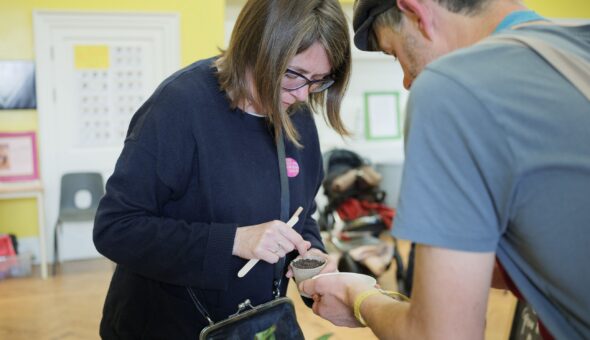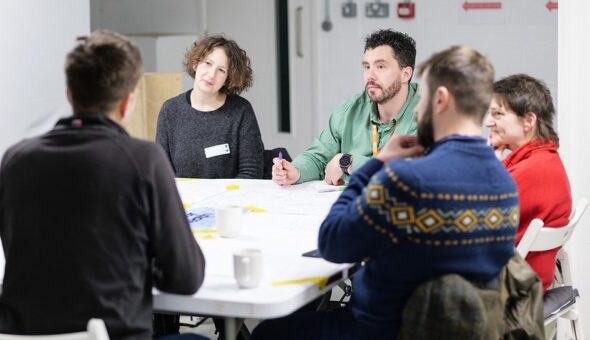To mark the ninth Global Accessibility Awareness Day, the UK Government's Digital Services team ran a series of webinars on digital accessibility. We joined them for the session on supporting others to develop accessible practice.
The SCULPT system
Helen Wilson, Digital Designer at Worcester County Council, led the Making accessibility accessible: the secret to engaging your workforce webinar and share the SCULPT system, a set of guidelines designed to support people to create accessible documents online.
SCULPT stands for Structure, Colour and Contrast, Use of images, Links, Plain English and Table structure. All of these are vital elements to creating accessible online documents. Whether you're sharing PowerPoint slides from a presentation or sharing a word document with colleagues, there’s a lot we in the public engagement world can learn from these guidelines.
Download the SCULPT Guide to provides easy to understand guidance on creating accessible documents.
Accessible public engagement
While some public engagement work occurs face to face, document accessibility is still a crucial part of good practice. If you’re working with external or internal collaborators, you might be using shared documents, creating meeting minutes, reports or PowerPoint slides. Making sure these documents are as accessible as possible means you can work more effectively with a wider variety of public groups and avoid unintentionally excluding people from your work.
Equally, if you are taking part in any digital engagement, you want to keep these accessibility requirements at the front of your mind. If you share your slides from an online talk, this guide will be helpful to ensure everyone can access them and you don't risk excluding people.
We were particularly pleased to see ‘Plain English’ mentioned as part of the SCULPT guidance. In the Public Engagement Unit, plain English has been a critical part of many of our initiatives, including the Images of Research competition that we ran up until 2018. Using clear language and avoiding jargon can help you when working with all audiences, including academic colleagues from other fields and anyone for who English is a second language or people with learning difficulties or reduced cognitive abilities.
You can find out more about SCULPT in a blog post written by Helen Wilson or explore any of the links above.
Rob Cooper is a Public Engagement Officer at the University of Bath
Respond



